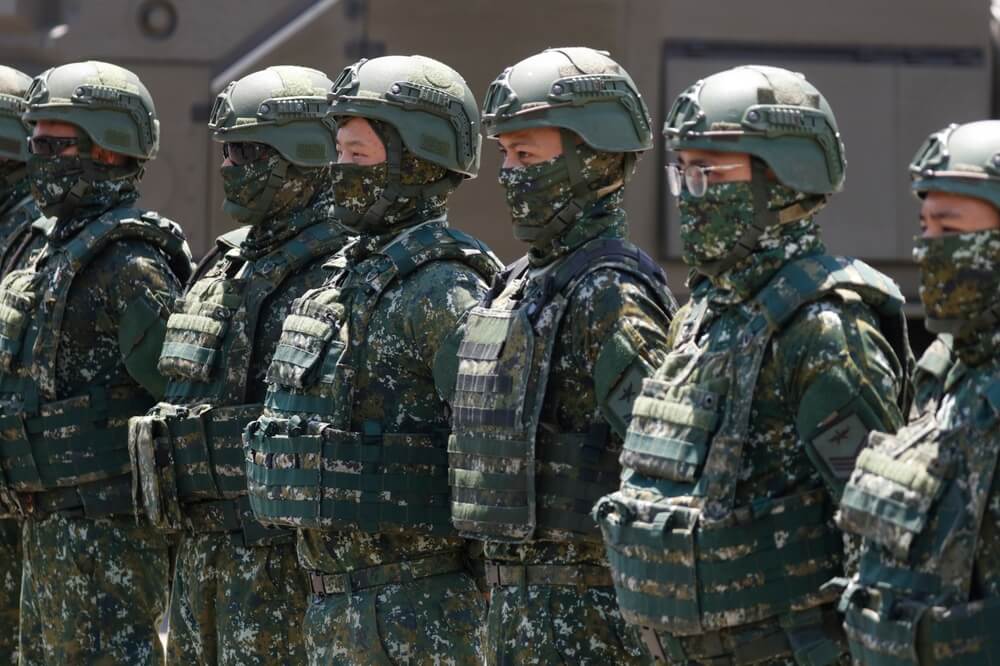The brief stopover by Taiwan's new president, Lai Ching-te, in Hawaii during his tour of the small Pacific Island countries could not have been anything more than a symbolic gesture.
But it will take on far more significance than mere symbolism, as it comes at a time critical in many respects for Taiwan's position regarding China.
Despite the fact that Taiwan's pro-independence leader's arrival on US soil could not be considered an interstate visit, both sides gladly accepted the protocol, which only required the president of America's Pacific ally, albeit an unrecognised one, to arrive in the US at all.
President Lai Ching-te met with Hawaii Governor Josh Green on Saturday and visited the memorial dedicated to the victims of Pearl Harbour. "Our visit to the memorial today in particular reminds us of the importance of ensuring peace. Peace is priceless, and war has no winner. We have to fight—fight together—to prevent war," said the Taiwanese president at the banquet attended by several hundred Taiwanese living in Hawaii.
Routine condemnation of Beijing
The American hosts gave his visit a state dimension to the extent determined by the fact that the US does not recognise Taiwan's independence.
Congresspersons Jill Tokuda and Ed Case, several Hawaiian state senators, the mayor of Honolulu, and Ingrid Larson, director of the American Institute in Taiwan (AIT), which represents US interests on the island in the absence of formal diplomatic ties, joined Governor Green in welcoming the Taiwanese president.
Taiwan received a clear answer that the US carefully continues its alliance with the island that China considers its territory
Taiwan thus received a clear answer that the US carefully continues its alliance with the island that China considers its territory.
Beijing, understandably, reacted swiftly, even though it was merely a routine condemnation of American meddling in what it considered internal matters.
"China strongly condemns the US's arranging for Lai Ching-te's 'stopover' and has lodged serious protests with the US," announced the Ministry of Foreign Affairs in Beijing.
President Lai's visit, though brief and in the form of a stopover, was a demonstration of Taipei's desire to keep its tensions with China in Washington's focus at a delicate moment in the presidential administration's transition.
Uncertainty before Trump's arrival
Donald Trump taking office will undoubtedly mark Washington's tougher attitude towards China, which the future president considers to be the number one competitor, both in economic, political, and security terms.
However, Taiwan's role in the future Chinese strategy of the incoming administration remains unclear. Therefore, President Lai's visit to a federal state of the US can also be viewed as a form of allied pressure in the period of final setting of policies, and especially of officials in the administration who will implement those policies.
One of the anxieties plaguing Taiwan is Donald Trump's earlier stance that allies must show greater independence in defence
One of the anxieties plaguing Taiwan is Donald Trump's earlier stance that allies must show greater independence in defence against security challenges and less reliance on the US.
Although these attitudes, which also marked Trump's previous presidential term, mainly concern American partners in Europe, Taiwan is no exception.
Increasing the defence budget
Politicians in Taipei responded to Trump's campaign message, which suggested that Taiwan should increase its military budget to 10% of GDP, with concern. Taiwan's public finances, which currently allocate around 2.2% of GDP for defence, would find it extremely difficult to accommodate that request.
 Taiwan ranks among the top 20 military spenders in the world, but Donald Trump's proposed fivefold increase would put the government in Taipei under unmanageable financial strain
Taiwan ranks among the top 20 military spenders in the world, but Donald Trump's proposed fivefold increase would put the government in Taipei under unmanageable financial strain
Taiwan ranks among the top 20 military spenders in the world, but the future US president's proposed fivefold increase would put the government in Taipei under unmanageable financial strain.
However, there are numerous reasons to believe that Trump's second term and even some of the policies he supported during the campaign will not materialise once he assumes office.
"Besides dollars invested and improved training, Taipei will also need to develop a clear public relations strategy to convince Trump Administration officials and the American public that it is doing what is necessary," said J. Michael Cole from the Global Taiwan Institute.
Therefore, President Lai's brief and transitory visit to Hawaii should also be interpreted as a sign of his willingness to harmonise other aspects of Taiwan's policy, not just security, with the main positions of the new Trump administration.